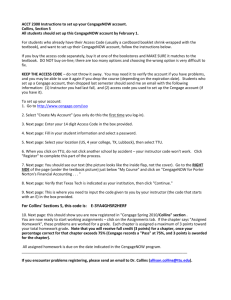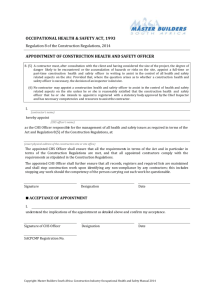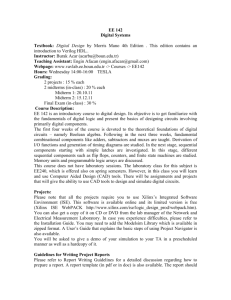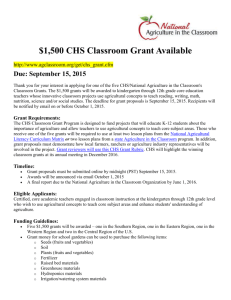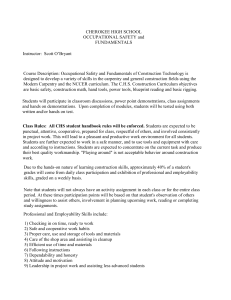Syllabus for the Tuesday and Thursday Section
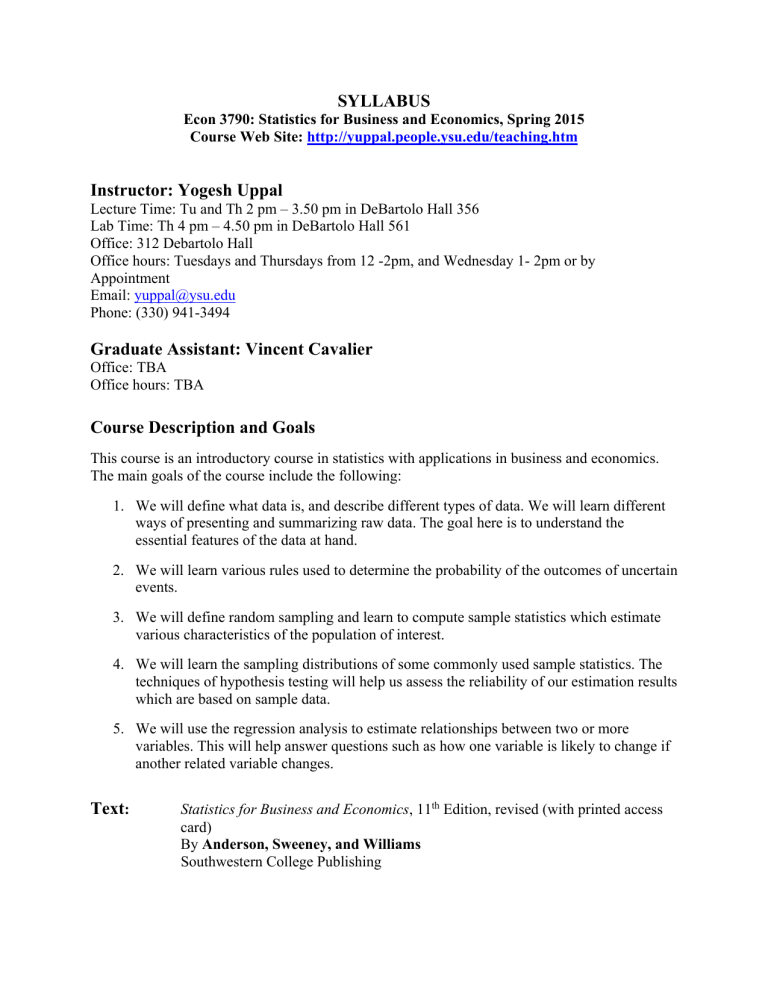
SYLLABUS
Econ 3790: Statistics for Business and Economics, Spring 2015
Course Web Site: http://yuppal.people.ysu.edu/teaching.htm
Instructor: Yogesh Uppal
Lecture Time: Tu and Th 2 pm – 3.50 pm in DeBartolo Hall 356
Lab Time: Th 4 pm – 4.50 pm in DeBartolo Hall 561
Office: 312 Debartolo Hall
Office hours: Tuesdays and Thursdays from 12 -2pm, and Wednesday 1- 2pm or by
Appointment
Email: yuppal@ysu.edu
Phone: (330) 941-3494
Graduate Assistant: Vincent Cavalier
Office: TBA
Office hours: TBA
Course Description and Goals
This course is an introductory course in statistics with applications in business and economics.
The main goals of the course include the following:
1.
We will define what data is, and describe different types of data. We will learn different ways of presenting and summarizing raw data. The goal here is to understand the essential features of the data at hand.
2.
We will learn various rules used to determine the probability of the outcomes of uncertain events.
3.
We will define random sampling and learn to compute sample statistics which estimate various characteristics of the population of interest.
4.
We will learn the sampling distributions of some commonly used sample statistics. The techniques of hypothesis testing will help us assess the reliability of our estimation results which are based on sample data.
5.
We will use the regression analysis to estimate relationships between two or more variables. This will help answer questions such as how one variable is likely to change if another related variable changes.
Text
:
Statistics for Business and Economics
, 11 th Edition, revised (with printed access card)
By Anderson, Sweeney, and Williams
Southwestern College Publishing
Lab Work
This course requires extensive use of computer software to apply the concepts learnt in the class to real world data. The instructions for computer applications will be provided by the graduate assistant in the computer lab scheduled along with this class. These applications will be taught using Microsoft Excel. Please see below for the weight given to the lab work in determining your final grade.
Grading
The course will require 4 online homework assignments (out of a total of 5), 4 online quizzes
(out of a total of 5), 2 midterm exams, and a final exam. Additionally, the lab part of the course will have assignments required by the lab instructor. The final course grade will be broken down into homework (10%), quizzes (10%), two midterm exams (20% each), a final exam (20%), and the lab assignments (20%). Students may use a one-page cheat sheet (of the size 8.5*11) and a simple calculator during the online quizzes and in-class exams. The online quizzes and homeworks will only be available till their due date. PLEASE MAKE SURE YOU SUBMIT
EACH ASSIGNMENT BEFORE IT EXPIRES. No make-up assignments or exams will be given. It will be your responsibility to make sure you have appropriate technology including a reliable internet connection to complete the online assignments.
The scale for deciding the letter grade is as follows. If your numerical grade is X, then
X ≥ 90%
80% ≤ X < 90%
70% ≤ X < 80%
60% ≤ X < 70%
X < 60%
A
B
C
D
F
Online Resources
The course webpage contains many resources for students. You should visit the website regularly for various announcements, lecture slides, homework assignments, and practice exams. I will also put homework solutions and links to various datasets on the website.
Disability Policy
In accordance with University procedures, if you have a documented disability and require accommodations to obtain equal access in this course, please contact me privately to discuss your specific needs. You must be registered with the Center for Student Progress Disability
Services, located at 275 Fifth Avenue, and provide a letter of accommodation to verify your eligibility. You can reach CSP Disability Services at 330-941-1372.
Center for Student Progress Services
The Marion G. Resch Center for Student Progress is a resource on Campus established to help students successfully complete their university experience. Please phone (330) 941-3538 or visit
the Center for assistance in tutoring or for individualized assistance with social and academic success. The main Center is located in Kilcawley West below the bookstore.
Academic Honesty
I take academic honesty very seriously. Any person caught cheating will automatically get an F in the class. Please refer to the Undergraduate Bulletin or the student code (available at http://www.ysu.edu/thecode.pdf) for the University’s academic honesty/plagiarism policy.
Course Schedule
A tentative schedule of the class is as follows. Please pay careful attention to the important dates and the readings assigned. It is recommended that students read the material before the class to understand the lectures better.
Chapters
Reading assigned
Chs. 1-3
Chs. 4-6
Chs. 7-12
1.1-1.6, 2.1-2.2, 2.4, 3.1-3.3, 3.5-3.6
4.1-4.5, 5.1-5.4, 6.1-6.3
7.1-7.6, 8.1-8.2 and pp 317-18, 9.1-9.5, 11.1, 12.1-12.2
Chs. 13- 15 13.1-13.2, 13.5, 14.1-14.9, 15.1-15.5
Important Dates and Deadlines
Homeworks Quizzes Midterm
Homework # 1 due on Jan
29 at 11:55pm
Quiz # 1 due on Feb 3 at
11:55pm (covers Chs. 1 and 2)
Homework # 2 due on
Feb 12 at 11:55pm
Quiz # 2 due on Feb 17 at
11:55pm (covers Chs. 3 and 4)
Quiz # 3 due on Mar 24 at
11:55pm (covers Chs. 5 and 6)
Homework # 3 due on
Mar 5 at 11:55pm
Homework # 4 due on
Apr 2 at 11:55pm
Homework # 5 due on
Apr 30 at 11:55pm
Quiz # 4 due on Apr 7 at 11:55pm
(covers Chs. 7 and 8)
Quiz # 5 due on May 4 at
11:55pm (covers Chs. 9, 11 and
13)
Midterm # 1 on Feb 26
(covers Chs 1-4)
Midterm # 2 on April 9
(covers Chs 5-8)
Last Day to Withdraw with a grade of ‘W’: 03/26/15
Final
May 7 (Thursday) at 1 pm
How to access your
CengageNOW course
Econ 3790 Spring 2015
Instructor(s): Yogesh Uppal
Start Date: 01/11/2015
What is CengageNOW?
CengageNOW is a powerful resource for Success!
CengageNOW includes a variety of tools--all combined in one easy-to-use resource designed to improve your grades. Some resources get you prepared for class and help you succeed on homework, and others show you specific areas where you can work to improve. Get Started Today!
Registration
1.
2.
Connect to http://login.cengagebrain.com/course/E-TWQNJ7BK35AJB
Follow the prompts to register your CengageNOW course.
Payment
After registering for your course, you will need to pay for access using one of the options below
Online: You can pay online using a credit or debit card, or PayPal.
Bookstore: You may be able to purchase access to CengageNOW at your bookstore. Check with the bookstore to find out what they offer for your course.
Free Trial: If you are unable to pay at the start of the semester you may choose to access CengageNOW during your free trial. After the free trial ends you will be required to pay for access.
Please note: At the end of the free trial period, your course access will be suspended until your payment has been made. All your scores and course activity will be saved and will be available to you after you pay for access.
If you already registered an access code or bought CengageNOW online, the course key to register for this course is: E-TWQNJ7BK35AJB
If you have any difficulties please contact Customer Support at www.cengage.com/support .

